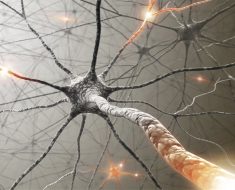Helpful tips for carbohydrate consumption
Many people who want to reduce your weight, limit your consumption of carbohydrates. However, a nutritionist from the USA, explains why carbohydrates are not the diet enemy number one to be considered and to what time of day you best be consumed.

The German nutrition society (DGE), according to the amount of carbohydrates are delivery the most important energy-providing nutrients in the diet of the people. The intake of carbohydrates is Mainly through the consumption of plant foods. Some of those wanting to lose weight limit your consumption. However, this is not useful in any case.
Healthy Carbs
Carbohydrates have been in many a bad reputation. However, they are nutrients in addition to fat and protein one of the three essential macro. “Carbohydrates are in your body to glucose, or sugar. Your body converts this glucose into energy,“ says Kate Patton, a registered dietitian at the prestigious Cleveland Clinic in the US in a post.
“Carbohydrates are the preferred energy source of your body”, says the expert. “The bulk of your carbohydrates should be from natural sources – originate; Things are not changed or processed,“ says Patton. Examples of healthy carbohydrates are:
Grains and starches: Choose whole-grain products, when it comes to bread, cereal, rice and pasta goes.
Legumes: legumes are also a great source of vegetable Protein. These sources include peas, lentils and beans.
Fruit: Patton recommends unpeeled fruit. “If canned fruit is more accessible, or affordable”, they are still better than no fruit, says the expert. However, you should be consumed without the contained in the can juice.
Vegetables: These healthy carbohydrates are also full of fiber, vitamins and minerals. To the carbohydrate vegetables, potatoes, Corn, root vegetables and pumpkins belong to.
Milk: milk is a good source of Protein, calcium and Vitamin D.
Finding the balance?
“Most of the foods and food groups contain carbohydrates, so you should find the right balance,” says Patton. “If you are an average, healthy person, you eat throughout the day at each meal carbs.”
But to consume carbs earlier in the day can be better if you:
Lose weight or blood sugar levels want to improve: “The majority of Americans are early in the day and in the evenings sit more,” says the nutritionist. This should also apply to the majority of people in this country. “If the largest carbohydrates-a Portion is taken in the evening, this can lead to an increase in the level of blood sugar. Your body then stores the extra glucose that is not used as body fat for energy.“
In the morning train: “If you are in the morning, less than an hour to train, it is fine, on an empty stomach to play sports and be in the fat burning zone to reach,” explains Patton. “But if you are more of a endurance athlete, or for longer than an hour to train, you may need a small Snack before the workout. In any case, it is good to have carbs, which will help afterwards when Refueling.“
Sleep disorders: “eating carbohydrates at dinner can impair sleep, especially if you go to bed, while the food is still digested, especially if you have heartburn.”
In General, it is also important to consume the right kind of carbohydrates. Patton says that eating sugary, processed foods can cause blood sugar to rise rapidly. As a result, you can feel only one to two hours later, again hungry – and even more food. The same thing can happen if you take only eating carbs and not enough Protein and fat.
Carbohydrates in the interval fasting
The interval fasting (intermittent fasting) is followed by a time of food intake a fasting. Possible a 2:5-scheme, so two days fasting and five days normal eating, or a 16:8-version, so 16 hours of fasting and eight hours of normal eating, for example. The latter method is more widespread.
For people practicing this Form of fasting, it is, according to Patton, in order, carbs in the entire window to eat – even if the goal is weight loss or if you suffer from Diabetes or pre-Diabetes. “But during this eight-hour window, the control of total amount of carbohydrates you eat,” she advised.
How high, the coal should be carbohydrate consumption?
Carbohydrates should make up the DGE is that less than 50 percent of the daily energy intake. According to Patton, the Follow the plate method is a simple way to ensure that you are eating the right amount of carbohydrates. Fill half of the plate or the plate with vegetables, one quarter with protein and a quarter with carbohydrates.
If you are an Athlete or are physically active, it can make your day better, to divide your plate into thirds. Patton recommends, however, the macro-nutrients to keep each meal balanced.
The body is “processed fuel is most efficient in smaller, more frequent doses. You are so, throughout the day consistently: eat three meals and two to three Snacks.“
Tips for a balanced diet
If your carbohydrate can containing eating habits to be desired, they can be, according to Patton with these tips on the way to a balanced diet brought:
Consumption monitor: “Some Apps can show you how much percent of your calories from carbohydrates,” explains the nutritionist. “These Apps usually provide a visual representation, e.g. a pie chart for each meal. In this way, you can keep track of your carbohydrate consumption better.“
European food: “The European way of eating usually includes eating the largest meal for lunch,” says Patton. “Since many Americans have dinner as their largest meal, it can be so easy to swap the two and make dinner your lighter meal.” This is also true for people in Europe, where usually dinner is the biggest meal of the day.
Treat yourself to leftovers: “If you like the dinner as a larger meal maintain want to try, Protein, vegetables and a smaller Serving of carbs to eat,” suggests Patton. “Then you can pack these leftovers the next day for lunch, and then take the protein and vegetables with a larger portion of carbohydrates.” (ad)





